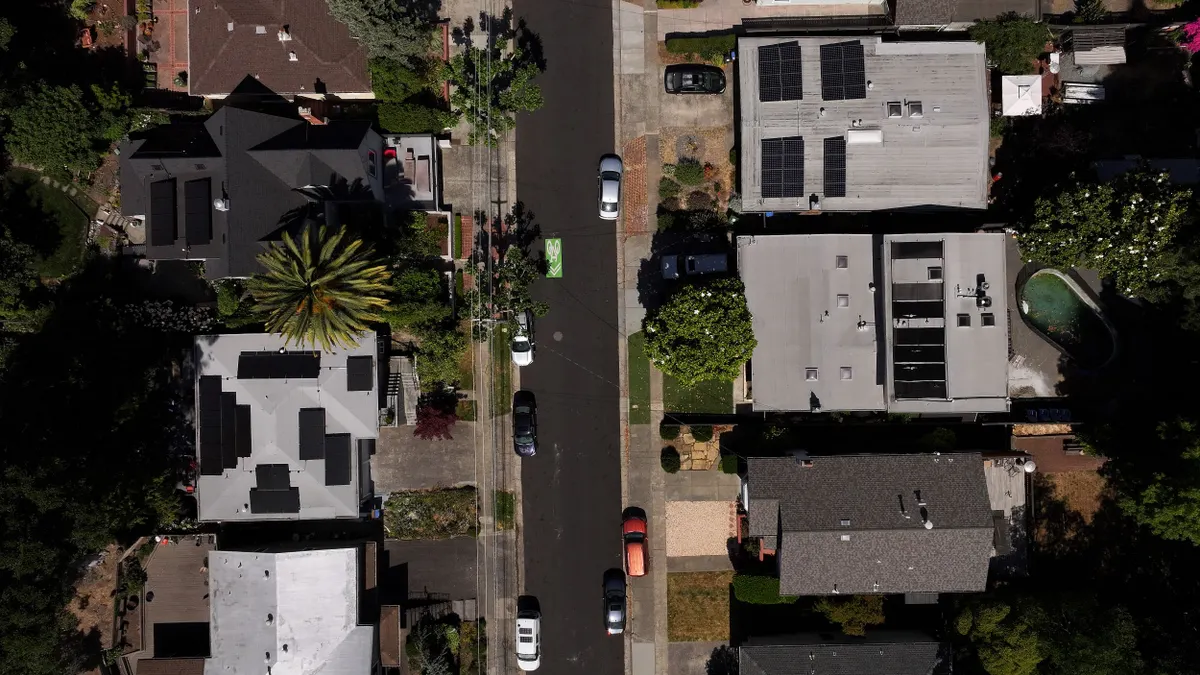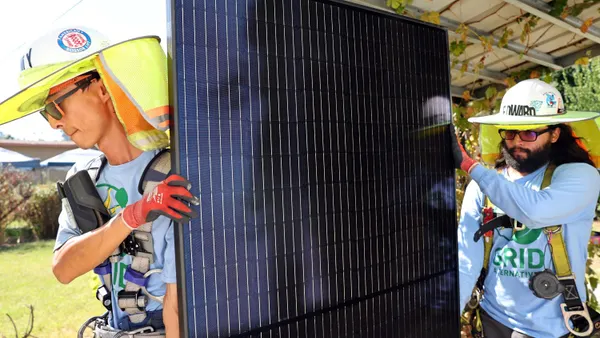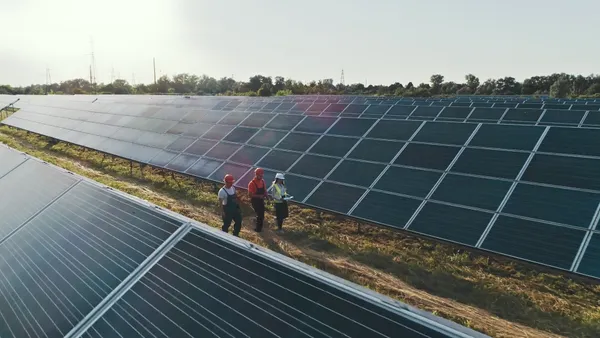Dive Brief:
-
The Federal Energy Regulatory Commission on Thursday ordered mandatory reliability standards for inverter-based resources, or IBRs, to help make sure wind, solar and battery storage don’t threaten grid reliability.
-
FERC also directed the North American Reliability Corp. to develop a plan to register the entities that own and operate IBRs and approved updated interconnection requirements for those resources.
-
At least a dozen times, groups of IBRs totaling 1,000 MW on average, have tripped offline, according to Leigh Anne Faugust, an attorney in FERC’s Office of General Counsel. “These events demonstrate the challenges to planning and operating the bulk-power system posed by gaps in the reliability standards specific to IBRs,” Faugust said during FERC’s monthly meeting.
Dive Insight:
FERC is moving to bolster standards for IBRs as NERC estimates that roughly 860 GW of wind, solar and storage could come online over the next decade. Those resources use inverters to convert the direct current electricity they produce to alternating current electricity used on the grid.
Synchronous generators, such as natural gas-fired power plants, typically ride through grid disturbances while IBRs must be programmed to do so, according to Faugust.
“It's vitally important that we ensure that not only synchronous generators operate reliably, but also that non-synchronous, or in this case, inverter-based resources, operate reliably as well,” FERC Chairman Richard Glick said.
Ensuring that IBRs ride through disturbances requires reprogramming certain equipment, which isn’t difficult, according to Glick.
NERC has been raising alarms about IBRs for several years. In 2016, about 1,200 MW of solar generation in southern California tripped offline during transmission line faults in a wildfire, according to a NERC report.
To help address the issue, FERC issued a proposed rule directing NERC to develop new or modified standards to eliminate four reliability gaps related to IBRs.
The proposed revisions deal with data sharing, model validation, planning and operational studies and performance requirements, such as IBRs’ ability to function during system disturbances, Faugust said.
Separately, the commission gave NERC 90 days to submit a plan describing how it plans to identify and register the owners and operators of IBRs connected to the bulk-power system that are not currently required to register with the organization, Faugust said.
Unregistered IBRs aren’t required to comply with mandatory reliability standards or respond to NERC alerts, she said.
IBRs can provide a range of reliability benefits, including nearly instantaneously ramping up and down, said Boris Voynik, a staff member in FERC’s Office of Electric Reliability.
“IBR flexibility and speed [are] extremely beneficial when the grid is experiencing potential voltage collapse,” he said.
The American Clean Power Association was waiting to review the FERC decisions before commenting.














